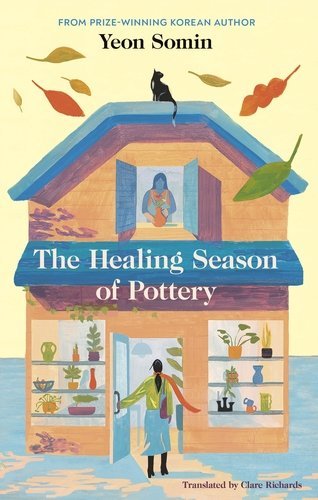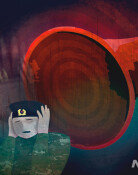‘Korean novels leading the trend in healing literature,’ reports British media
‘Korean novels leading the trend in healing literature,’ reports British media
Posted October. 07, 2024 09:48,
Updated October. 07, 2024 09:48

Following the global popularity of K-pop and K-dramas, Korean "healing (therapeutic)" novels are emerging as the latest trend overseas, according to a recent analysis. On Thursday (local time), the British weekly news magazine The Economist reported that Korean novels portraying burnout (extreme fatigue and lethargy) are gaining attention abroad.
According to the magazine, Korean "healing novels," which became a major trend in Korea after the COVID-19 pandemic, have gained popularity online and are now attracting attention from global publishers. The report highlighted that these novels are particularly popular among young female readers who search for recommended books on social media, with interest growing after recommendations from K-pop stars. Additionally, popular domestic bestsellers, such as Marigold Mind Laundry, have been translated and published in the U.S. and the U.K., and prominent international publishers, including Bloomsbury, are either publishing or acquiring the rights to Korean healing bestsellers.
Penguin Random House, the largest publisher in the English-speaking world, is set to release three works of Korean literature within the next four months. Editor Jane Lawson said, "Korean novels have suddenly become a massive trend, and their popularity has exploded. The healing trend has become so globalized that multiple works have secured publishing rights deals in 15 to 20 regions." An international publishing agent, Joy Lee, commented that while there are various genres of Korean literature, "It now seems that healing novels are becoming synonymous with Korean literature to foreign publishers."
Healing novels depict protagonists who leave behind the stresses of work life or the failures of their jobs, seeking something more meaningful. The Economist analyzed that the popularity of healing novels in Korea reflects the highly competitive social atmosphere, where burnout is widespread. It added that seven out of ten Koreans report mental health issues such as depression, and in Seoul, "nap cafés" have become a common sight.
Claire Richards, who translated Yeon So-min’s The Healing Season of Pottery, set to be published overseas this fall, explained that the novel is rich with "cozy healing elements" such as cats, kimchi, and ice cream. The Economist also noted that locations in healing novels, such as laundries that wash away emotional wounds or shops where dreams can be purchased, serve as "escapism" for readers. It evaluated that these novels offer readers an experience of "literary healing."
김윤진 기자 kyj@donga.com
Headline News
- Kim Jong Un: Negotiations with U.S. have gone to the limit
- Yoon’s support rating remains at 20% for two weeks in a row
- SEC chair known for cryptocurrency regulations announces resignation
- Medical student scores 398 on CSAT, signaling ‘applications for reach schools’
- Noh Kyung-eun to play up to three more years with SSG







